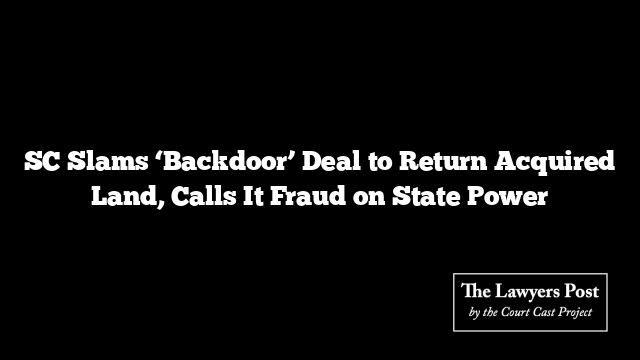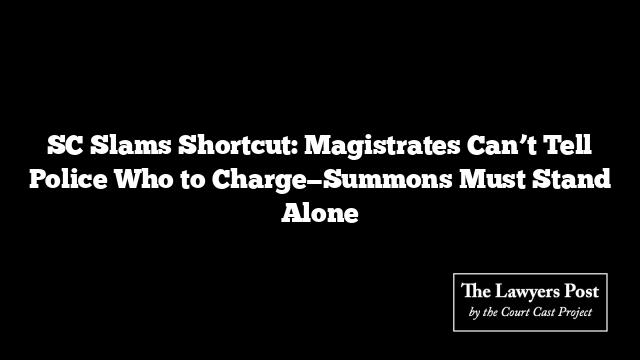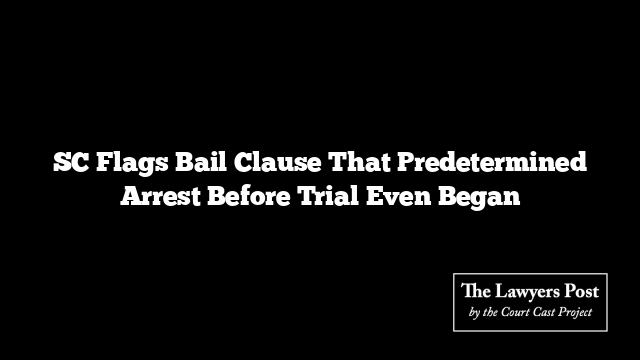In a sharp rebuke to private settlements that attempt to undo the State’s sovereign land acquisitions, the Supreme Court has ruled that land taken under the power of eminent domain for public purposes cannot be handed back to original owners through side deals or private agreements.
The case centered on the Delhi Agricultural Marketing Board, which found itself in the middle of a tangled legal drama after agreeing to transfer half of a 33-acre government-acquired plot—meant for a grain market in Narela—back to the original landowner, Bhagwan Devi. This maneuver, cloaked as a private settlement, was executed just one day before the Board’s then-chairman stepped down.
The Supreme Court, led by Chief Justice Sanjiv Khanna and Justice Sanjay Kumar, saw right through the arrangement, calling it a “fraud on the exercise of sovereign power.” Once land is acquired by the State and handed to a statutory body for a public purpose, the Court said, the matter is closed. There is no legal route for the beneficiary to reverse-engineer a transfer back to the previous owner through backroom deals.
“This isn’t just bending the rules—it’s turning the law of land acquisition on its head,” the bench observed.
The Board had originally taken possession of the land in 1986 under the Land Acquisition Act, 1894. The High Court, however, had endorsed the agreement between the Board and Bhagwan Devi after an out-of-court settlement, despite the fact that the Board never received absolute ownership of the land—it only held possession, not title. The settlement had promised to return half the land if Bhagwan Devi repaid the proportionate compensation plus interest.
That private agreement soon spiraled into arbitration, with an arbitrator ruling in favor of the landowner. Both a Single Judge and Division Bench of the Delhi High Court upheld the award under Sections 34 and 37 of the Arbitration and Conciliation Act, 1996.
But the Supreme Court stepped in, overturning the decisions, and firmly stating that the award violated public policy and could not stand. Justice Kumar, writing for the Court, emphasized that under Section 48 of the Land Acquisition Act, only the government has the authority to withdraw from an acquisition—and only before possession is taken. Since the Board had taken possession decades earlier, even the government could no longer undo the acquisition.
“Neither the courts below nor the arbitrator took proper notice of the public policy breach. When an arbitral award clashes with the bedrock of Indian legal and moral standards, it cannot be allowed to stand,” the Court ruled.
The apex court declared the Board’s move to convey land back as unauthorized, nullifying the award and restoring the foundational principle that land acquired for public use stays that way.
With this ruling, the Court has sent a strong message: government acquisitions for public interest are not reversible through handshake deals, side letters, or settlements crafted in the shadows.





